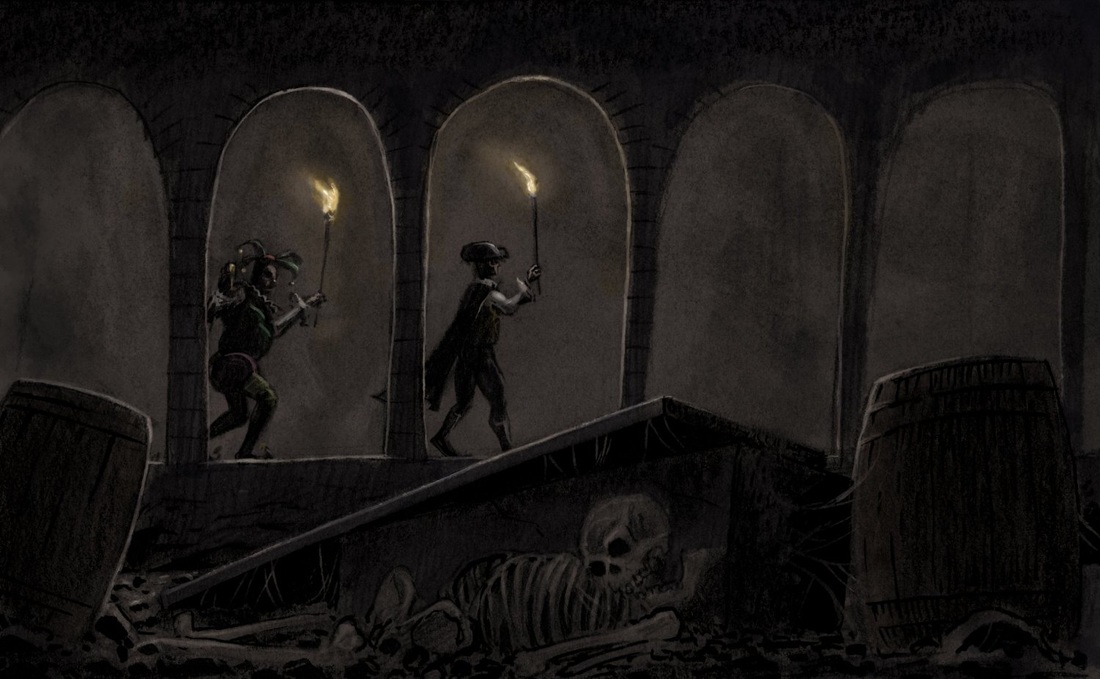Friday
After reading essays on Edgar Allan Poe by two Chinese students, I am reminded of how essential a voice he is in understanding the American psyche. Such are the benefits of cross-cultural conversations.
Yixin Chen and Zhiwen Hu, one-semester exchange students at St. Mary’s, offered up interpretations that were influenced by their communally-oriented society. Writing on “The Fall of the House of Usher,” Zhiwen focused on how Poe shows the dark side of American individualism—which is to say, how an emphasis on self can turn into narcissism. Vincent, meanwhile, also looked at America’s emphasis on self. “The Masque of the Red Death” and “The Cask of Amontillado,” he argued, are about the individual mind terrified of dying.
Poe, as Harold Bloom once wrote, dreamt America’s nightmares, and he serves as a counterpoint to those celebrations of individuality that one finds in Ralph Waldo Emerson, Henry David Thoreau, and Walt Whitman. Zhiwen noted how Roderick’s self-absorption brings about his ultimate demise. Roderick Usher’s activities are solitary (he paints, plays music, and reads), he has no friends, and his relationship with his sister verges on the incestuous. Feeling the need to counteract his isolation, he invites the narrator to visit him, but in the end his House, symbol of the self, collapses in on itself.
Having just witnessed America’s strangest election, Zhiwen was fascinated by what he saw as our self-absorption and our continual search for self-gratification. Poe captures this aspect of our national character fairly well, and I was put in mind of Christopher Lasch’s 1979 book, The Culture of Narcissism, which had an impact on President Jimmy Carter.
Yixin examined Poe’s fixation on the individual in closed spaces, a topic that initially caught his eye because the Chinese are not accustomed to living alone. We had discussed Freud’s theory that haunted houses are symbols of the mind repressing uncomfortable truths it does not want to face. The uncomfortable truth in “Masque” and “Amontillado,” Yixin said, is that we are going to die.
This is fairly evident in “Masque,” where Prince Prospero seals the gates of his castle—shuts his mind—to the plague that is rampaging through the countryside. He then holds an extravagant masque ball to take his mind off death. The noisy party is interrupted every hour as the clock strikes, a momentary reminder that life is running out. Death is a horror because Prospero has spent so much effort repressing it.
Yixin saw a version of the same drama in “Amontillado.” Montresor sees his own vulnerable self in Fortunato, dressed in fool’s garb for Carnival, and hates him for it. He is also unsettled by Fortunato’s cough, perhaps a sign of tuberculosis. By meting out death himself, he thinks he can inoculate himself against it. In some ways, he is playing the Red Death to Fortunato’s Prince Prospero, but he is also himself Prince Prospero, attempting to seal death behind a bricked up wall.
Of course, death refuses to stay shut out and ultimately forces itself into our consciousness. Montresor appears to be telling his story as a deathbed confession, with the confession functioning as a reluctant admission of his coming fate. As with Prospero, Montresor finds death horrifying because he denies it so vehemently.
Yixin was particularly interested in how Montresor and Fortunato, killer and victim, are doubles of each other. Freud believed we find doubles to be uncanny (think of wax dolls, automatons, and clowns, staples in our horror films) because they originated out of our fear of death. Drawing on the work of Otto Rank, Freud says that doubles were originally our attempt to defeat death but that they became, as a result, uncomfortably associated with death:
The theme of the “double” has been very thoroughly treated by Otto Rank. He has gone into the connections the “double” has with reflections in mirrors, with shadows, guardian spirits, with the belief in the soul and the fear of death; but he also lets in a flood of light on the astonishing evolution of this idea. For the “double” was originally an insurance against destruction to the ego, an “energetic denial of the power of death,” as Rank says; and probably the “immortal” soul was the first “double” of the body….[T]he same desire spurred on the ancient Egyptians to the art of making images of the dead in some lasting material. Such ideas, however, have sprung from the soil of unbounded self-love, from the primary narcissism which holds sway in the mind of the child as in that of primitive man; and when this stage has been left behind the double takes on a different aspect. From having been an assurance of immortality, he becomes the ghastly harbinger of death.
I have long known that Poe questions America’s celebration of individuality, but seeing him through Chinese eyes brought this home to me in a new way. We Americans preach the virtues of self-empowerment, forgetting its dark twin self-imprisonment.
